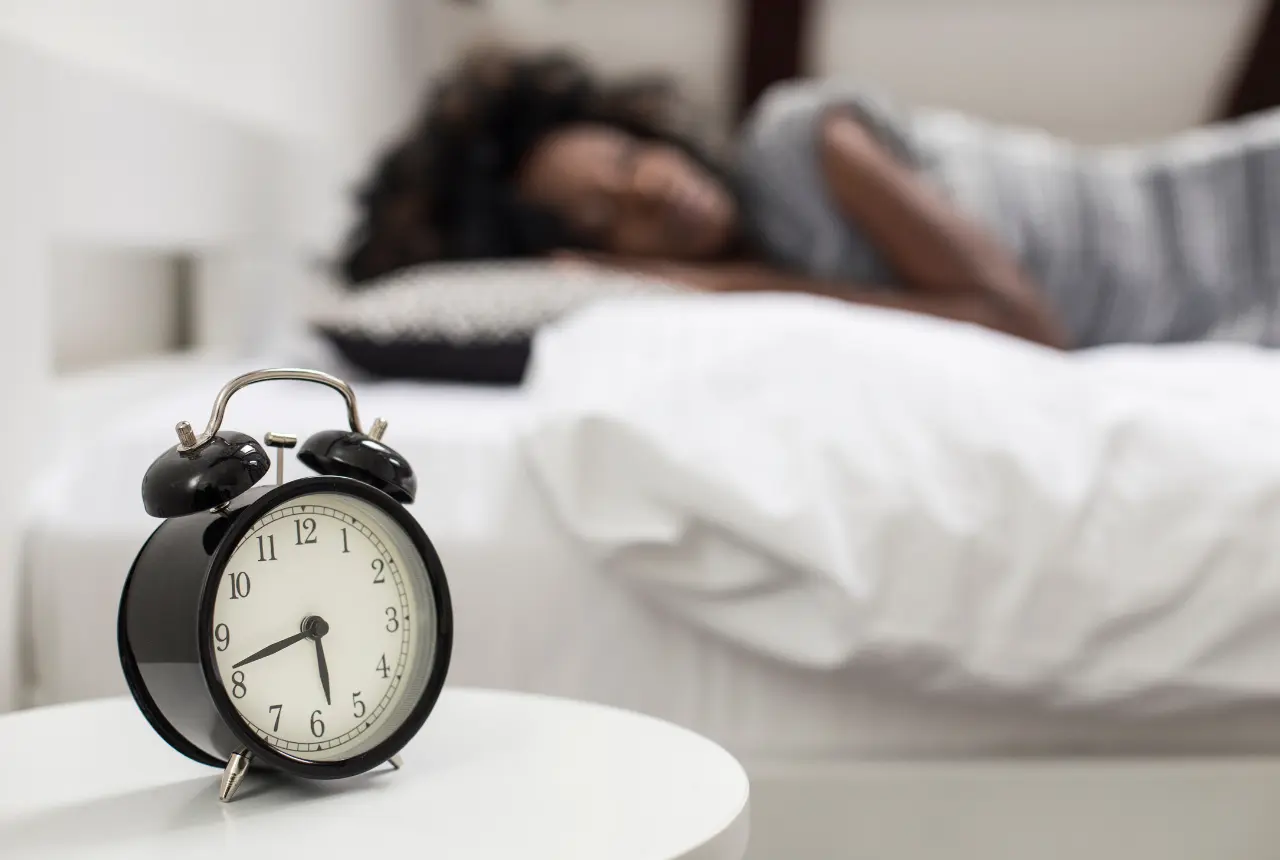6 Bedtime Habits for Better Sleep and Health
Sleep is essential for your health, affecting everything from your mood to your energy levels and even how sharp your mind is. When you don’t get enough rest, you can end up feeling grumpy, tired, and less focused, which can mess with your day and your long-term health. That’s where “sleep hygiene” comes in—a set of healthy sleep habits that can help you enjoy a more restful night. In this article, we’ll share six simple bedtime habits that can improve your sleep, so you wake up feeling refreshed and ready to take on the day.
6 Bedtime Habits for Better Sleep Will Improve Health
1. Create a Consistent Sleep Schedule

Keeping a regular sleep schedule is key to staying in sync with your body’s internal clock. If you go to bed and wake up at the same time each day, even on weekends, you’ll help your natural sleep cycle stay on track. This routine makes falling asleep and waking up easier and more natural.
Ever heard of “social jet lag”? It happens when your weekend sleep habits mess with your weekday schedule, leaving you feeling off and groggy. To avoid this, try to keep your sleep times consistent, even on days off. If you need to adjust your schedule, do it gradually—shift your bedtime and wake-up time by just 15 minutes each day until you hit your new routine. This way, your body can adjust smoothly without major hiccups.
2. Develop a Relaxing Bedtime Routine

Winding down before bed is essential for letting your body know it’s time to sleep. A calming bedtime routine can make the transition from a busy day to restful sleep much smoother.
Try adding relaxing activities to your routine, like taking a warm bath or shower. The warmth helps to relax your muscles and soothe your mind. You might also enjoy reading a book or listening to calming music—both are great for creating a peaceful atmosphere. Gentle stretches or light yoga can also help release any lingering tension and get your body ready for sleep.
Mindfulness practices like meditation or deep breathing are powerful tools for winding down. Meditation shifts your focus away from daily worries, while deep breathing slows your heart rate and helps you feel calm. Incorporating these into your nightly routine can make it easier to relax and drift off to sleep.
The key is consistency. By discovering what helps you unwind and making it a regular part of your evening, you’re telling your body it’s time to relax and prepare for a good night’s sleep.
3. Optimize Your Sleep Environment

Your sleep environment plays a big role in how well you rest. To make your bedroom more sleep-friendly, focus on keeping it dark, quiet, and cool. Blackout curtains or an eye mask can block out unwanted light, while earplugs or a white noise machine can help drown out noise.
A cool room, ideally around 60-67°F, helps your body relax and stay comfortable throughout the night. By tweaking these simple elements, you’ll create a cozy space that makes it easier to enjoy deep, uninterrupted sleep.
Bonus Tip: Invest in Quality Bedding
Your bedroom setup can make all the difference in how well you sleep. To create a cozy, sleep-friendly space, focus on keeping it dark, quiet, and cool. Blackout curtains or an eye mask can block out any light, while earplugs or a white noise machine can help you tune out noise.
A cool room—around 60-67°F—keeps your body relaxed and comfy throughout the night. By making these simple tweaks, you’ll create a peaceful environment that encourages deep, uninterrupted sleep.
4. Power Down Electronics Before Bed
The blue light from screens can mess with your sleep by stopping your body from making melatonin, the sleep hormone. To sleep better, turn off your devices at least an hour before bed. Instead of scrolling, try winding down with a good book, some deep breathing, or a relaxing bath. These simple activities help you unwind and get your body ready for a good night’s sleep.
5. Manage Stress and Worries
Stress can mess with your sleep, so it’s important to unwind before bed. Try deep breathing or jotting down your thoughts in a journal. If you’re worried about tomorrow, make a quick to-do list or do something calming. These simple steps help clear your mind and set you up for a restful night.
6. Be Mindful of What You Eat and Drink
Eating big meals or heavy foods too close to bedtime can make it hard to sleep comfortably. Also, avoid caffeine and alcohol in the evening, as they can mess with your sleep. If you’re hungry before bed, choose a light, healthy snack to keep from waking up feeling famished.
Troubleshooting Common Sleep Problems

Struggling with sleep issues like insomnia or sleep apnea can really affect how you feel. Insomnia, where falling or staying asleep is tough, can often be improved with better sleep habits. Try sticking to a consistent sleep schedule, creating a relaxing bedtime routine, and cutting out caffeine before bed. If insomnia continues, talking to a healthcare provider might help. They might suggest treatments like cognitive-behavioral therapy for insomnia (CBT-I) to tackle the root causes.
Sleep apnea is another issue where your breathing repeatedly stops and starts during sleep, leading to poor-quality sleep and daytime tiredness. Symptoms like loud snoring, gasping for air, or feeling sleepy during the day should be checked out. A healthcare provider might recommend a sleep study to diagnose it and suggest treatments like a CPAP machine to keep your airway open.
Addressing these problems with lifestyle changes and medical advice can really boost your sleep quality and overall health.
The Benefits of Good Sleep for Overall Health

Getting enough good sleep does wonders for your overall health. It sharpens your brain, helping you remember things better and stay focused. You’ll also feel more energetic and alert during the day. Plus, quality sleep strengthens your immune system, making it easier for your body to fight off illnesses.
It can also lower your risk of serious health issues like heart disease, diabetes, and high blood pressure by keeping your metabolism and inflammation in check. Not only does good sleep boost your physical health, but it also lifts your mood, making you feel more balanced and happy.
When to See a Doctor?
If you’re still struggling with sleep issues despite good habits, it might be time to see a doctor. Ongoing problems like insomnia, waking up frequently at night, or feeling excessively tired during the day could point to a sleep disorder or health issue that needs medical attention.
Symptoms such as loud snoring, gasping for air while you sleep, or constant fatigue might signal conditions like sleep apnea. A doctor can help by conducting a thorough evaluation, which might include a sleep study, to get to the bottom of your issues. They’ll offer tailored treatments, whether that’s lifestyle changes, medication, or other therapies, to help you sleep better and boost your overall well-being.
Conclusion
To wrap it up, good bedtime habits are key to better sleep and overall health. Stick to a regular sleep schedule, wind down with a relaxing routine, and make sure your sleep space is comfy. Managing stress and focusing on sleep hygiene will boost your brainpower, energy, and immune system.
Tailor your sleep routine to what works best for you, and you’ll see a big improvement in how well you rest. Prioritizing quality sleep leads to a healthier, happier life. So, make sleep a top priority for a restful night and a more balanced you.


